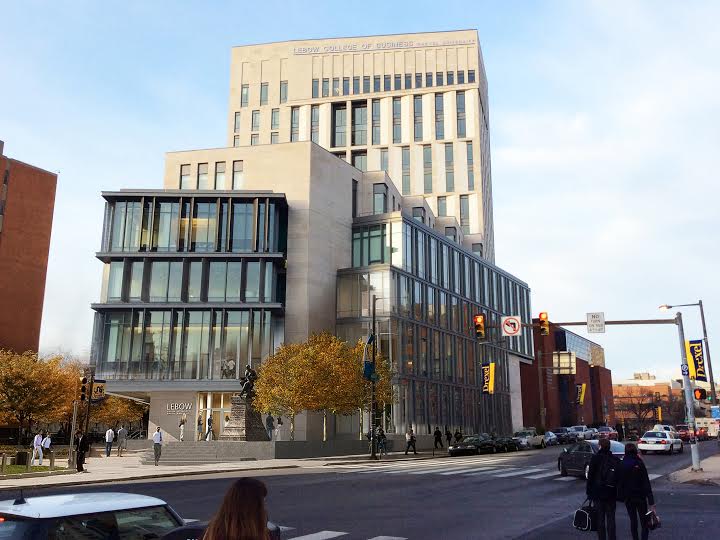In 2002, Mark Loschiavo knew there was going to be a wave. He just didn’t realize how big it was going to be. Before he became its executive director, Loschiavo knew it was a good time to launch what would become the Baiada Institute for Entrepreneurship at Drexel University’s LeBow College of Business.
“It was the right time to cultivate the entrepreneurship that was already here at Drexel,” said Loschiavo, noting the school’s long experiential learning groundwork. Find our 2009 Q&A with him here. Three things were happening even after the dot-com bubble burst.
- The “contract” between employers and employees finalized its shift. No longer were people entering the workforce and expecting to have long careers with a single company.
- The opportunities were changing. Major corporations dropped two million jobs from 1992 to 2002, while small businesses were growing, he said. It was a clear precursor to the conversations of today.
- The cost of starting a business was plummeting. From Web 2.0 web services to widely available entrepreneurship lessons, starting a business is easier and more popular as a path than since the Industrial Revolution. Even in pharmaceuticals, said Loschiavo, pre-lab testing is allowing biomedical startups to delay the need and scale of capital. It’s part of a huge push of research and development programs falling at large companies and mergers and acquisition departments growing.
Twelve years later, the Baiada Center, which was named by entrepreneur Mel Baida for his father Laurence and promoted to an Institute in 2012, is a prize of a university trying to bolster its innovation credentials. It’s also a heck of a way for the school to raise money — it’s now in the Close School of Entrepreneurship, which was founded with a $12.5 million gift last year.

The program, which features both mentor services from nearly 200 professionals for alumni and student companies, is perhaps best known for its physical incubator, which currently houses 14 companies, which earned their spot by winning one of the school’s business plan competitions.
For now, that incubator is in a plain open room of gray cubicles with breakout spaces since it moved to the new $92 million, 12-story, 177,500 square foot LeBow building at 33rd and Market streets that opened in University City in October.
But its residents will likely spruce that up in time, said Director of Programs and Services Terri Zobel. The program’s community comes with its unique cast of characters, including undergraduates who work between classes, graduate students there on weekends and graduates toiling late at night.Its program and competitions have no distinctions between levels of experience, Zobel said.
That’s because something has changed since the early 1990s, according to Loschiavo’s experience: student startup businesses are so much stronger.”The kind of quality we get today is at a totally different level than what I saw 20 or even 10 years ago,” he said. “You can just feel something is different today.”The whole place was quiet one morning in early December but that changes quickly, she said.
“Too many incubators are driven like hotels: just fill the space,” he said. “We keep space limited and it’s contingent on our program. We only want those that are the right fit for what we have here.”







